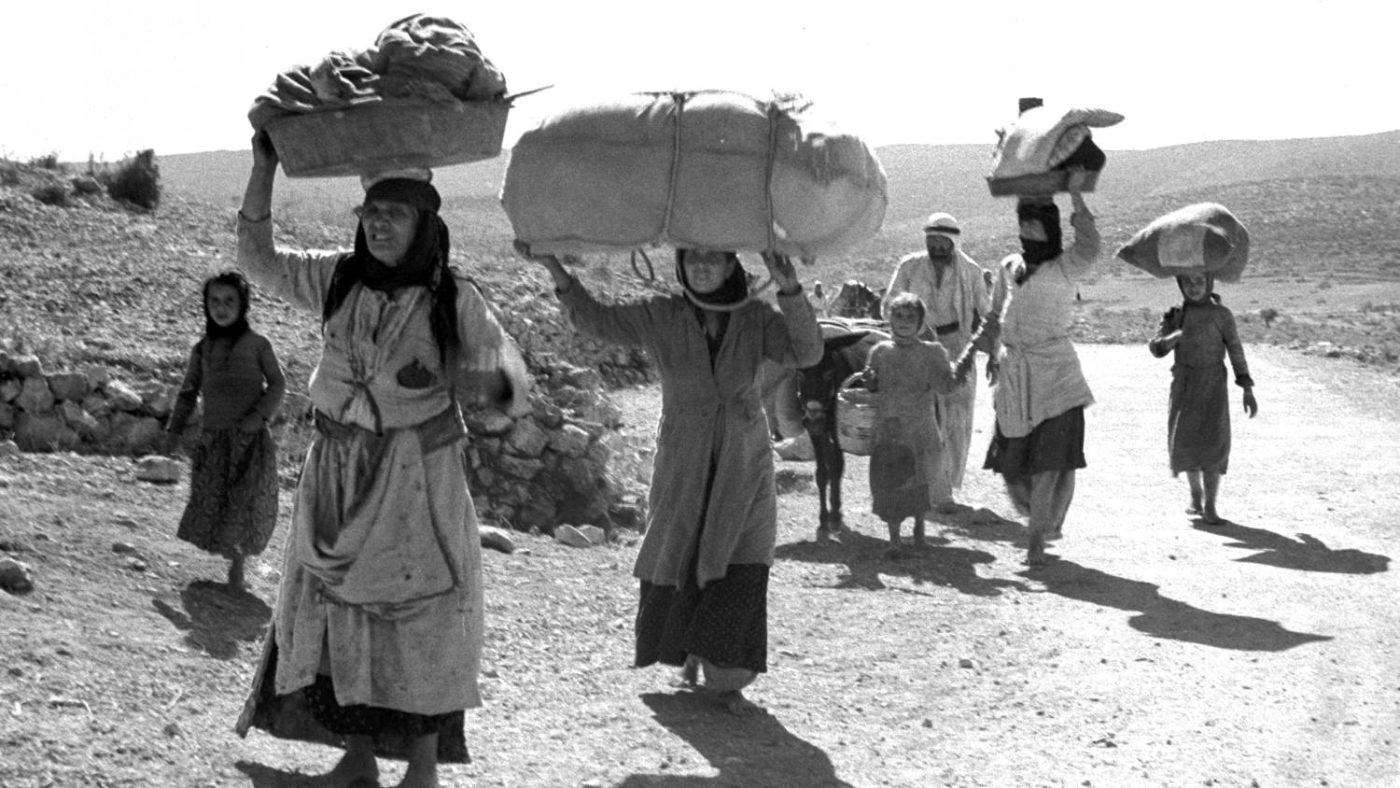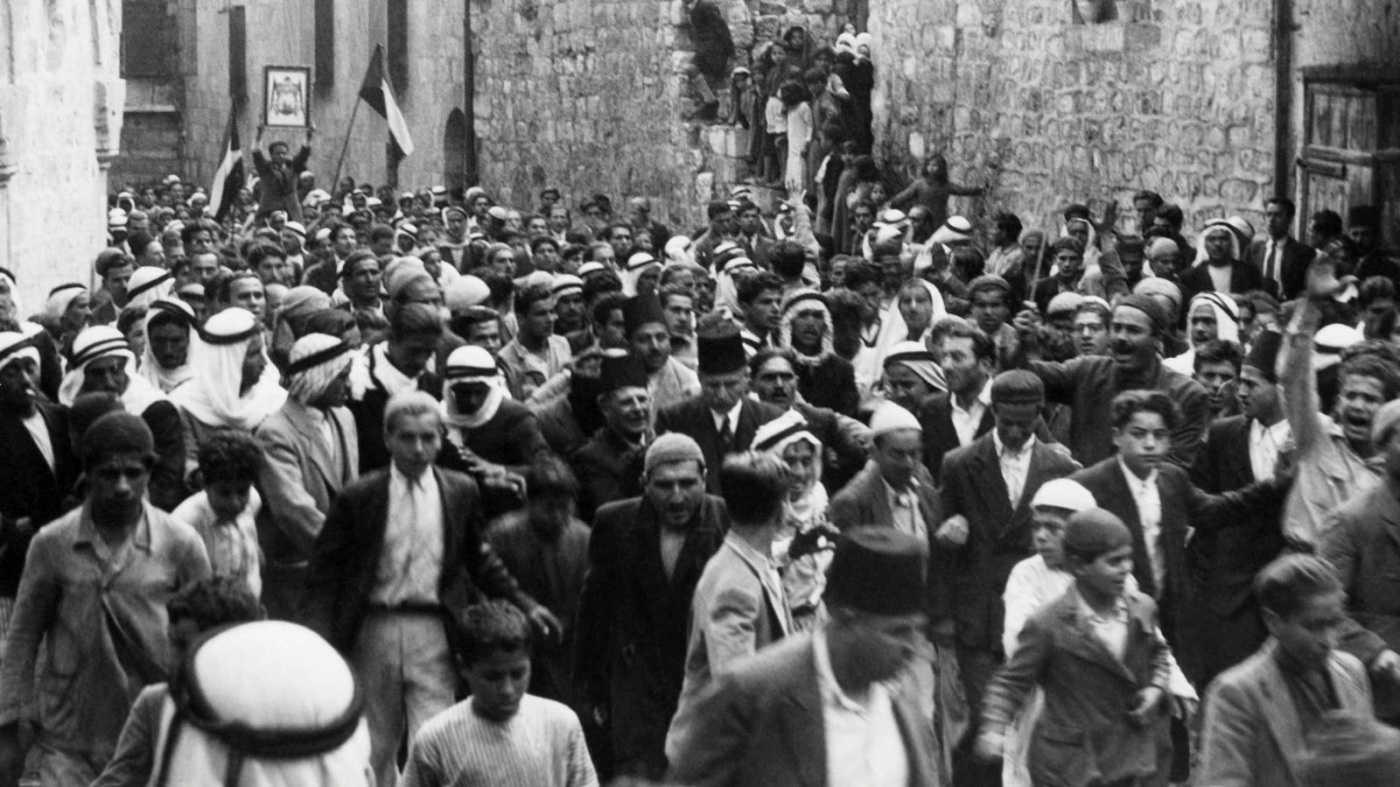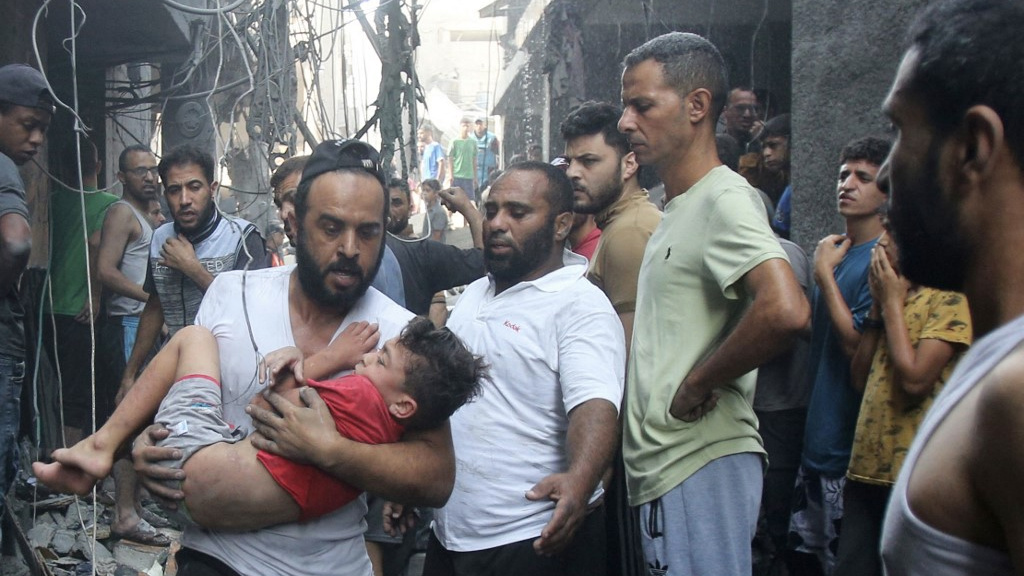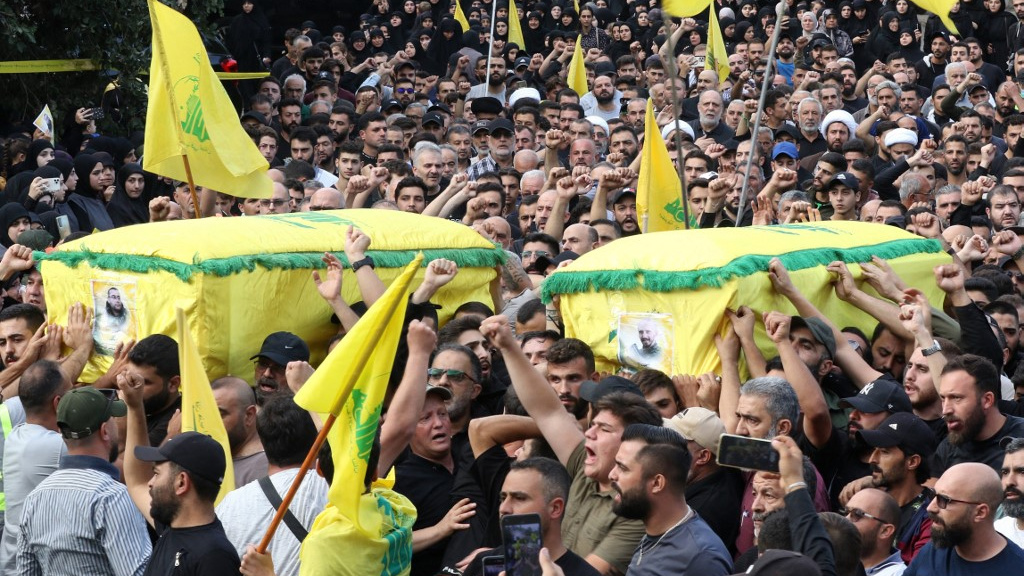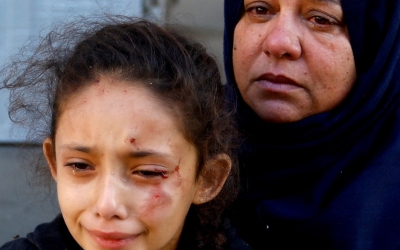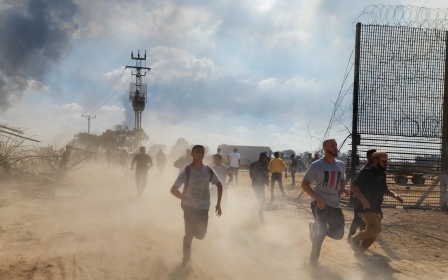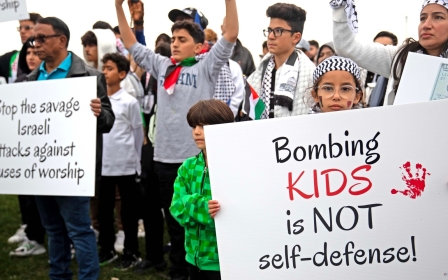The Nakba that Israel has started will backfire

From the first moments of Hamas’s breakout from Gaza, Israeli Prime Minister Benjamin Netanyahu made one promise that has almost entirely escaped attention.
He told the mayors of southern border towns that Israel’s response would “change the Middle East”. He said the same thing in his address to the stunned nation: “What we will do to our enemies in the coming days will reverberate with them for generations.”
What is in his mind? We know he has long wanted to attack Iran’s nuclear installations. Three years after he was first thwarted in 2010, he told CBS: “I won’t wait until it is too late.”
We know, too, that he wants to eradicate Hezbollah and Hamas, which he once described to me (when he was in opposition) as aircraft carriers for Iran.
Since the Palestinian fighters' attack on Saturday, he has used words that mirror former US President George W Bush’s response to the 9/11 attacks. In going after al-Qaeda in Afghanistan, former Vice President Dick Cheney, the power behind the throne, was already thinking about a bigger attack on Iraq.
Stay informed with MEE's newsletters
Sign up to get the latest alerts, insights and analysis, starting with Turkey Unpacked
Is Netanyahu thinking of harnessing the unparalleled support he is currently getting from the international community for his campaign against Gaza for something much bigger, as Bush did in 2001?
The head of the Israeli opposition, Benny Gantz, has also hinted at a bigger project: “We will win, and change the security and strategic reality in the region.”
Second Nakba
Reoccupying Gaza and finishing off just one Palestinian armed group would not change the strategic reality of the region, and you don’t need an army of 360,000 troops to reoccupy Gaza. This is the greatest number of reserves called up in the history of the country.
Hamas has a maximum of 60,000 armed men, according to my sources, which alongside other factions, would struggle to make a force a third of that size.
Of course, this could be bluster - the sort of bellicose rhetoric that is Netanyahu’s stock in trade. Vows to change the Middle East have been made frequently by previous Israeli and US officials and have proved to be hollow.
Follow Middle East Eye's live coverage for the latest on the Israel-Palestine war
Former Israeli Prime Minister Shimon Peres wrote a book about how Oslo would reshape the Middle East. Former US Secretary of State Condoleezza Rice pointed to “a different Middle East” when she urged Israel to ignore calls for a ceasefire after 11 days of bombing Hezbollah in southern Lebanon in 2006.
But what if a bigger venture is being planned? What would it entail, and what risks would it pose for the region as a whole?
The first and most obvious answer is a second Nakba, or mass expulsion of a sizeable proportion of Gaza’s 2.3-million-strong population - a figure big enough to alter the demographic time bomb that is in the back of every Israeli’s mind.
To judge by the words of Israel's leadership and the actions of its pilots, a mass exodus is exactly what Israel might be trying to force in Gaza right now
On Tuesday, Israeli Lieutenant-Colonel Richard Hecht told foreign reporters that he would advise Palestinian refugees to “get out” through the Rafah crossing on Gaza’s southern border with Egypt. His office then had to “clarify” what Hecht had said by admitting the crossing was closed.
The possibility that Egypt might be forced to allow an influx of refugees from Gaza - which happened after both the Arab-Israeli war of 1948 and the 1967 war - was also raised by Al-Azhar Al-Sharif, the largest religious institution in Egypt, which called on Palestinians to remain steadfast and stay put. Why would it put this statement out if the possibility of another mass exodus were not being discussed behind closed doors?
The arrival of one million Palestinians from Gaza in the Sinai could, without exaggeration, have the potential to tip Egypt over the edge after a decade of economic decline under the leadership of President Abdel Fattah el-Sisi. Already, record numbers of Egyptians are taking to the boats. Sisi himself realises this danger and repeated Al-Azhar’s call.
'Human animals'
There is also little doubt about what effect a mass expulsion of Palestinians would have on the hair-trigger balance between Palestinians and East Bankers in Jordan, which has Israel’s longest - and up until now, quietest - border.
A second Nakba would present the first two Arab countries to recognise Israel with an existential crisis, which could threaten each regime’s ability to control their own state.
And yet, to judge by the words of Israel’s leadership and the actions of its pilots, a mass exodus is exactly what Israel might be trying to force in Gaza right now.
On Monday, Israeli Defence Minister Yoav Gallant described Palestinians as “human animals” on the back of claims that Hamas had beheaded children - claims that cannot be independently verified, and which were not made when Israeli reporters were initially allowed in to see the carnage at Kfar Aza.
The same day, Knesset member Revital Gotliv called on Israel to consider using a nuclear bomb on Gaza, posting on social media: “Only an explosion that shakes the Middle East will restore this country’s dignity, strength, and security! It’s time to kiss doomsday.”
Then, Giora Eiland, a former general, said Israel must “create an unprecedented humanitarian disaster” in Gaza, and threatened another Nakba: “Only the mobilisation of tens of thousands and the cry of the international community will create the leverage for Gaza to be either without Hamas or without people. We are in an existential war.”
What is the Nakba?
+ Show - HideThe Nakba is one of the key events in modern Middle East history and one that has come to define the Israeli-Palestinian conflict ever since.
Also known as "The Catastrophe", it began in late 1947 and 1948, as the new state of Israel came into existence.
Palestine was part of the Ottoman Empire for hundreds of years until it was captured by the UK at the end of World War One (1914-18).
The League of Nations - a forerunner of the UN - gave Britain a "mandate" over Palestine after the war, which did not take into account the wishes of the native Palestinian population.
The aim of such mandates was to bring about "the rendering of administrative assistance and advice" to native populations until they were deemed capable of standing alone as independent states.
What was the problem?
The British Mandate incorporated the Balfour Declaration, sent by Arthur Balfour, the British foreign secretary, to Lord Walter Rothschild, a prominent member of the British Jewish community, in 1917.
It pledged to establish "in Palestine a national home for the Jewish people", who made up less than 10 percent of the population at the time.
During the mandate years (1923-48), the UK facilitated the immigration of European Jews to Palestine, increasing their population 10-fold, from 60,000 in the pre-Mandate era to 700,000 by 1948.
They also trained, armed and supplied Zionist groups, and allowed them a degree of self-governance.
In contrast, the native Palestinian population, which rejected European Jewish immigration and called for independence, was violently suppressed.
The number of Jews arriving in Palestine from Europe and elsewhere increased in the wake of the Holocaust, which systemically targeted Jews and others, resulting in the deaths of more than 6m people.
In February 1947, Britain announced it would terminate the mandate and turn the question of Palestine over to the newly formed United Nations.
The UN adopted a partition plan in November 1947, which divided Palestine into two parts: 55 percent would form a Jewish state, while 45 percent would create an Arab state. Jerusalem would be kept under international control.
But many argue that the plan did not take into account populations at the time.
In addition, Jewish paramilitary groups produced a strategy to control the borders of the new territory, called Plan Dalet (below).
Some of their members would go on to become key Israeli leaders, including Yitzhak Rabin (prime minister 1992 - 1995), Ariel Sharon (prime minister 2001 - 2006) and Moshe Dayan (minister of defence 1967 - 1974).
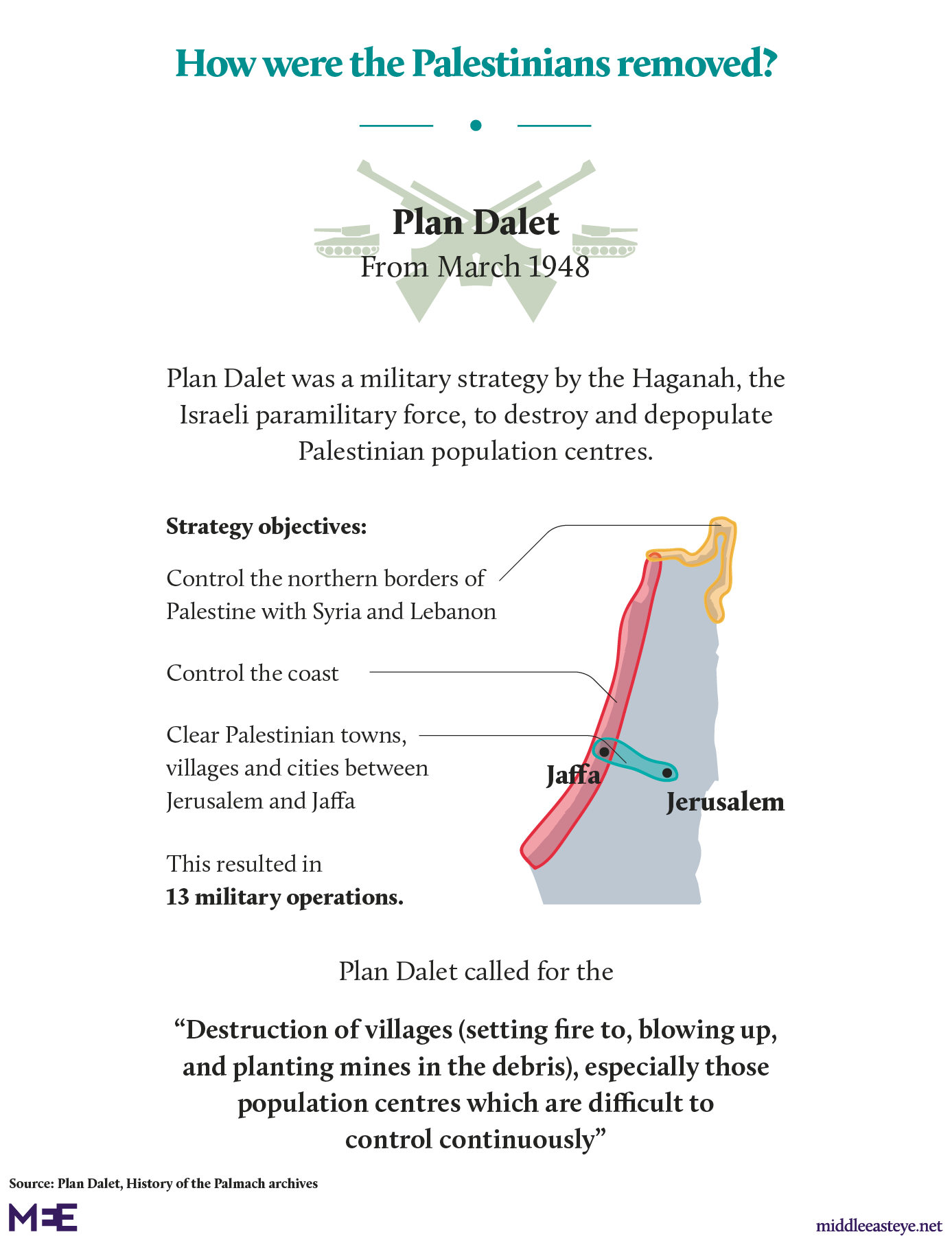
In the weeks and months that followed, thousands of Palestinians were killed or driven from their homes and communities uprooted by Jewish paramilitary groups.
Jews were also killed by Palestinian groups, if not in the same numbers.
On 14 May 1948, the State of Israel was unilaterally declared, a day before the British Mandate officially expired.
The new state had increased its share of historic Palestine from 55 percent to 78 percent. The remaining 22 percent was under Arab control.
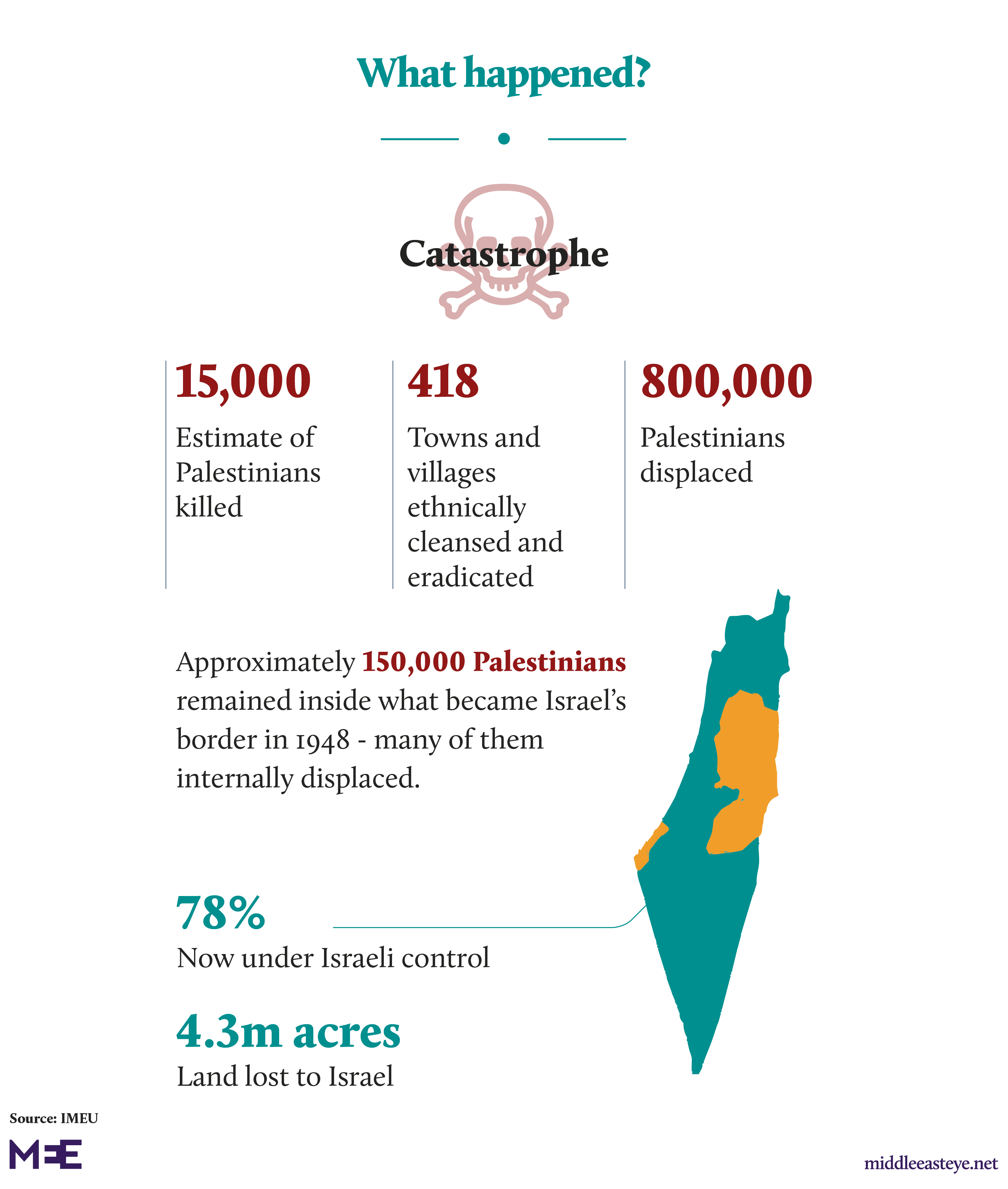
Many of the Palestinians who fled or were driven from their homes never returned to historic Palestine. Much of it is now the modern-day state of Israel.
More than 70 years later, millions of their descendants live in dozens of refugee camps in Gaza, the West Bank, and surrounding countries, including Jordan, Syria, and Lebanon.
Many still keep the keys to the homes that they and their families were forced to leave.
Nakba Day is now a key commemorative date in the Palestinian calendar. It is traditionally marked on 15 May, the date after Israeli independence was proclaimed in 1948.
Some Palestinians also observe it on the day of Israeli independence celebrations, which itself changes from year to year due to variations in the Hebrew calendar.
On Friday, little doubt remained of Israel’s intentions. The Israeli Army told Palestinians of north Gaza to leave, saying they would not be allowed to return "until we say so". Hamas has told Palestinians in north Gaza to "remain steadfast" and to "stay in your homes".
The second Nakba has started.
On Wednesday, an Israeli army official told Channel 13 that Gaza would be razed to the ground and reduced to a “city of tents” - which is, to be fair, exactly what has happened every night since the Hamas incursion.
Nightly slaughter
There is a massacre taking place almost every night in Gaza. Whole families have been wiped out by precision bombs. Palestinians in Gaza have been told to evacuate their whole district, only to run into the path of bombs. Districts are not just being bombed once; they are being systemically levelled.
In previous campaigns, Palestinians in Gaza fled to Rimal, a relatively wealthy middle-class area by the sea. It was regarded as a safe haven because in previous campaigns, Israel had no reason to bomb it. Now, Rimal is being levelled.
This nightly slaughter is not taking place accidentally by indisciplined pilots taking revenge for alleged war crimes committed by Hamas in southern Israel. It is taking place by design. The aim of cutting off electricity, water and food to more than two million people, and subjecting them to this nightly bombardment, is to get them to flee.
There is no place in Gaza safe from this form of genocide. Fourteen medical facilities have been bombed. Since Saturday, 500 children have been killed.
Ergo, if Israel is not stopped, the course on which it is embarked is to kill not 2,251 men, women and children in Gaza - as was the case in the ground incursion of 2014 - but tens of thousands, a casualty rate high enough to induce another Nakba.
Before that, this policy could have two effects: to start a civil war inside Israel between the Palestinians of 1948 and Israeli Jews, and to trigger a regional war with Hezbollah and ultimately Iran itself.
This could also be in Netanyahu’s head. Crushing Hamas would not change the Middle East, but defanging Hezbollah and Iran as forces that would be willing to try anything against Israel for the next decade, almost certainly would.
In the view of the national religious right, the sooner the Palestinian national cause is crushed, the better
Palestinian fighters shattered in one dawn raid the myth of invincibility Israel had enjoyed since defeating three Arab armies in six days in 1967. Even the 1973 Middle East war did not produce the shock that Hamas did.
Israel is now saying this war is existential. On the streets, Israel feels like a country where there is no authority; where Israelis can take justice into their own hands; where normal citizens, unconnected with settlers or the extreme right, are going around on the streets armed. Such is the general level of hatred and fear, that it could be only a matter of time before Palestinians inside Israel are attacked.
Domestically, those on the extreme national religious right, such as Finance Minister Bezalel Smotrich and National Security Minister Itamar Ben Gvir, have been saying for years now: “Bring it on.”
This past February, Gantz accused Smotrich of supporting settler violence in the occupied West Bank because he “wants to cause another Palestinian Nakba”. Now, Gantz and Smotrich are sitting side by side in the same cabinet.
In the view of the national religious right, the sooner the Palestinian national cause is crushed, the better. The national trauma induced by Hamas’s successful incursion is manna from heaven for them. It has produced exactly the conditions they have been waiting for.
Regional war
On Israel’s borders, the possibility of Gaza triggering a regional war has never been greater. Emotions are running high in all Arab capitals.
Hezbollah, the best-equipped and trained armed group Israel faces, has its finger on the trigger. There are credible reports that it has started a general mobilisation.
There have already been several days of attacks launched from the Lebanese border, including a confrontation involving fighters claimed by Islamic Jihad, in which three Israeli soldiers were killed. Three of Hezbollah’s fighters were also killed after Israel attacked sites in Lebanon in retaliation.
If a ground offensive gets going, which could be very soon, the choice for Hezbollah may be either to wait for Israel to finish off Hamas and then come for them - knowing they would effectively be on their own - or join Hamas and the other armed factions in Gaza, while each group retains its effectiveness as a fighting force.
Hezbollah might have very good reasons for wanting to keep the status quo on the Lebanese border, but this is no longer a conflict that any group facing Israel, or any part of the Palestinian movement, can afford to sit out without handing Israel a free pass.
On Thursday, Iranian Foreign Minister Hossein Amir-Abdollahian said that the crimes against the Palestinians would receive a response from "the rest of the [resistance] axis".
Hezbollah would be right to think that the longer this goes on, the more vulnerable each front becomes if they do not act in unison. That could be the one way to force Israel to come to a negotiated ceasefire in Gaza.
The second lever of constraint is the US. Does President Joe Biden really want to be dragged into a regional war, which would involve every armed group linked to Iran, such as the Houthis - a war for which it is not remotely prepared - at the very time that Ukraine’s counter-offensive has become bogged down, winter is coming, and Russian President Vladimir Putin can taste victory and European battle fatigue?
Does an unplanned regional war in the Middle East, created entirely by an unhinged ally, make any sense for the US? I don’t think it does. Biden has given Netanyahu the brightest of green lights in offering Israel its unequivocal backing, but I do not think the US has war-gamed the possible devastating outcomes of what is taking place in Gaza right now.
Dangers ahead
Off the Lebanese coast, a western battle fleet is assembling as a deterrent to Hezbollah.
Before acting, they should remember what happened just 40 years ago in Beirut, when a truck full of explosives drove into a barracks housing US marines, and minutes later, a similar attack occurred against a French company of paratroopers. Around 300 military personnel died.
Then-US President Ronald Reagan and then-French President Francois Mitterrand intended to mount joint air strikes. In the end, no retaliatory attack took place beyond naval bombardment, because the US defence secretary, Caspar Weinberger, and the secretary of state, George Shultz, could not agree on who was responsible for the bombings.
This time around, the warnings that Biden as vice president gave former President Barack Obama, about starting wars you cannot finish, will be ringing in his ears.
Both the US Secretary of State Anthony Blinken and the Defense Secretary Lloyd Austin are in the region trying to calm things down, but theirs is mission impossible. Having allowed Israel to light the fuse, they are now trying to contain the explosion.
The Middle East is incomparably weaker today than it was when Bush and former British Prime Minister Tony Blair blithely planned their invasion of Iraq in 2003. Syria, Iraq, Yemen, Sudan and Libya lie in ruins; and Egypt, Jordan and Tunisia are bankrupt. Instability has created huge flows of refugees across the Mediterranean, which even the most hospitable of hosts, Turkey, is now trying to reverse.
If only a third of what I have written comes to fruition, Israel could end up with open borders, inviting constant incursions by armed groups from Lebanon to Jordan to Egypt. At the very least, Israel would lose the quiet it has enjoyed on its longest border with Jordan.
No one can afford what one man, Netanyahu, has got in his head. No one can afford the blank cheque he has been given by the West to start this operation in Gaza.
A Gaza campaign that develops into a plan that could change the Middle East could backfire dangerously - and it should be stopped before it is too late.
The views expressed in this article belong to the author and do not necessarily reflect the editorial policy of Middle East Eye.
This article is available in French on Middle East Eye French edition.
Middle East Eye delivers independent and unrivalled coverage and analysis of the Middle East, North Africa and beyond. To learn more about republishing this content and the associated fees, please fill out this form. More about MEE can be found here.




